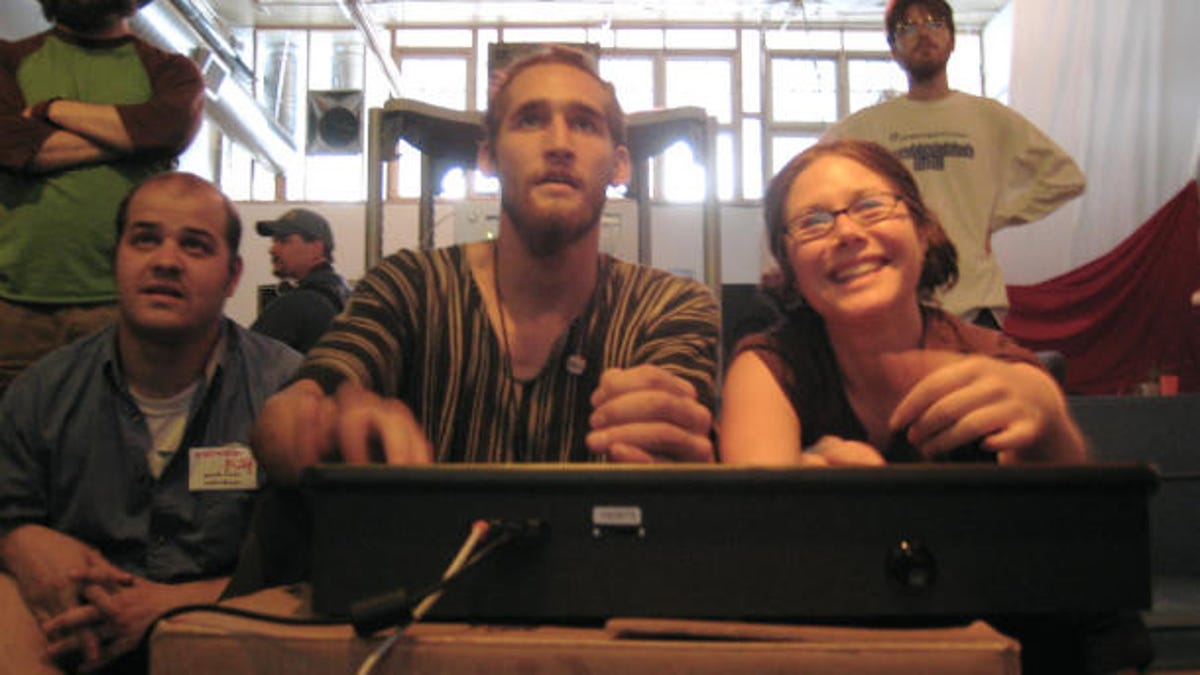Internet addiction could be dubbed official affliction in DSM-V
Can't resist the siren call of the status update? Is Pinterest your only interest lately? These behaviors could soon land you an official diagnosis of "Internet addict."

The so-called "bible" of the mental health profession is getting an update, and version 5.0 of the American Psychiatric Association's "Diagnostic and Statistical Manual of Mental Disorders" (DSM) could add "Internet addiction" to its lengthy list of disorders.
The different iterations of the DSM have for decades been the go-to reference many psychiatrists use to diagnose patients. The manual has been no stranger to controversy over the years, including recent charges by some that it seems written to serve the interests of drug companies as much as those of patients.
But now the APA working group in charge of revising the DSM section on substance-related disorders has proposed adding a new non-substance based affliction--"Internet addiction."
In other words, Internet addiction could soon be classified along other listed DSM disorders like "cocaine dependence" or "Opioid abuse."
As someone who is certainly un-diagnosed, but surely shows several symptoms of a potential Internet addiction problem--as I'm guessing many of you also do--I'm suddenly offended that the only way I could learn about this development was on the Internet. I can't imagine many people who suffer from alcoholism are forced to seek information on their affliction from their bartender.
Every now and then, you might come across a reference to something called "Internet Addiction Disorder," but such a disorder is not officially recognized by any major mental health organization in the U.S. However, Chinese research published last year looked at Chinese students who used a computer around 10 hours a day, 6 days a week and found that such heavy use actually did have a measurable impact on the brain. The researchers concluded that:
...long-term Internet addiction would result in brain structural alterations, which probably contributed to chronic dysfunction in subjects...
So are you and I Internet addicts? Well, it's not yet included in the DSM, so there's no "official" way to identify the symptoms and make such a diagnosis, but Dr. Jerald L. Block recently provided a few red flags in an editorial in the American Journal of Psychiatry:
1) excessive use, often associated with a loss of sense of time or a neglect of basic drives 2) withdrawal, including feelings of anger, tension, and/or depression when the computer is inaccessible 3) tolerance, including the need for better computer equipment, more software, or more hours of use, and 4) negative repercussions, including arguments, lying, poor achievement, social isolation, and fatigue
Yikes, as if that weren't broad enough to make any of us worry about our mental health, Dr. Block also includes gaming and texting under the umbrella of things that could be considered Internet addiction.
To its credit, the APA acknowledges that such diagnoses are problematic and will be considered "as research data accumulate."
The move to consider non-substance-abuse-based addiction disorders has also sparked a bit of a mental health smackdown between the psychiatry and psychology camps. David Elkins, president of the Society for Humanistic Psychology--a division of the American Psychological Association--has launched a petition with numerous criticisms of the proposed DSM changes. Elkins' open letter to the DSM V group includes this passage:
The Conditions Proposed by Outside Sources[13] that are under consideration for DSM-5 contain several unsubstantiated and questionable disorder categories. For example, "Apathy Syndrome," "Internet Addiction Disorder," and "Parental Alienation Syndrome" have virtually no basis in the empirical literature.
Clearly, even though the discussion has been opened on the notion of Internet addiction as a real form of mental illness, it seems the jury is still out. But if either the APA or Mr. Elkins need help in their search for data--or the lack thereof--I'm more than happy to help and dedicate endless hours combing through myriad online research journals, social networks, and other resources...it's all I'm doing these days, anyway.
(Via NY Daily News)

